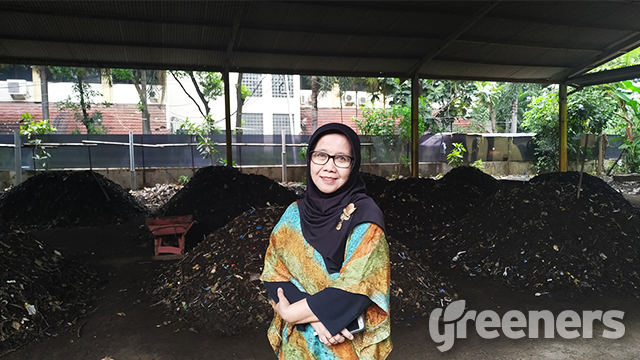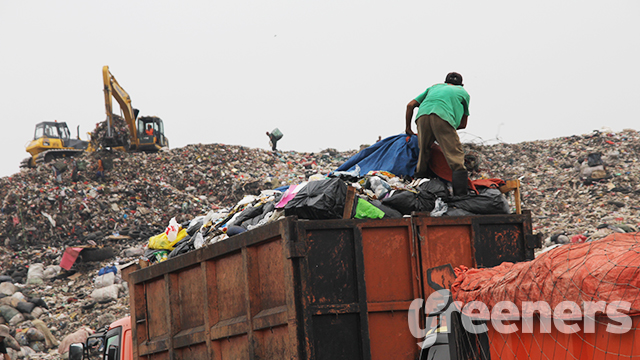Jakarta (Greeners) – Despite of the law on waste management, issued in 2008, stipulates to ban open dumping and turn to sanitary landfill, regional governments are struggling to finance the development.
Based on the law, regional governments must set up the plan to close open dumping landfills in a year and completely shut down all open dumping landfills in five years after it took effect.
READ ALSO: Ministry of Environment and Forestry Awarded Clean City to 146 Districts and Cities
Sri Bebassari, head of Indonesia Solid Waste Association or InSWA, said that open dumping landfills, ideally, should no longer allowed in Indonesia in accordance to the law. However, regional governments do not implement the law.
“Up to date, there are cities and districts still have open dumping landfills and no sanctions on this. The punishment only goes as far as not being awarded Adipura [clean city] awards. Meanwhile, our landfills are at the critical stage. Every minute, landslides could happen and take lives. In Indonesia, perhaps only Surabaya with sanitary landfill,” said Bebassari to Greeners in Jakarta (20/02/2019).

Head of Indonesia Solid Waste Association or InSWA, Sri Bebassari. Photo: greeners.co/Dewi Purningsih
Furthermore, she said that ideal landfills should be less than ten years old with the lands and capacity must consider waste volume, service rate, and activities. In addition, the facilities need to cover waterproof layers, waste water channels, waste water installation, buffer zone, testing or monitoring wells, and gas management. The landfills, she added, must also be equipped with recycle facilities, composting and or biogas.
“Apart from all of those requirements, they need also to prepare waste management costs. For sanitary landfill, it will need US$10 to US$12 per tons of waste at minimum,” she said. “The costs will cover sanitary landfill management, such as waste reduction, land preservation, residue, operational, maintenance, and service costs.”
She said that budget allocation for waste management in Indonesia is not a priority, either in the state budget or regional budget. The budget, she added, is still below standards along with waste retribution collected from people.
“It is very cheap here for waste fee per households, range between Rp5000 (US$0.36) to Rp50000 (US$3.55), the highest fee. This is also a sign of how lacking people’s role for waste management. So, the lack budget from the government and low fee for waste retribution are the reasons why we’re still doing open dumping,” she said.
READ ALSO: Government to Focus on Plastic Waste Issue
Indonesia declares 21 February as National Waste Care Day to commemorate the waste landslide disaster at Leuwigajah Landfill of Cimahi, West Java, at the same day in 2005. The disaster claimed 157 lives.
Nevertheless, similar disaster still occurred despite of 14 years of gap. The recent news reported that Cilowong Landfill of Serang, Banten province, had collapsed and killed two people.
Hence, Ministry of Environment and Forestry marked the National Waste Care Day by sending out letters to regional governments to carry out activities at landfills aiming to show their lack of waste management system.
“This form of awareness is expected to change the attitude and mindset in all elements. Hence, regional governments be able to improve capacity and public service, at the same time, people starts to have roles in reducing waste and sorting wastes,” said Novrizal Tahar, director of waste management at the ministry.
Reports by Dewi Purningsih



















































